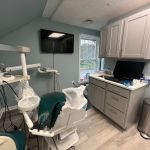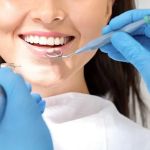
Preventive Dental Care for People with Autoimmune Diseases: Key Tips for Optimal Oral Health
- Understanding Autoimmune Diseases and Oral Health
- Why Preventive Dental Care is Crucial for People with Autoimmune Diseases
- Common Dental Issues in Autoimmune Disease Patients
- Best Dental Care Practices for People with Autoimmune Diseases
- Real-Life Case Studies and Experiences
- How to Choose the Right Dental Products for Autoimmune Disease Patients
- Final Thoughts on Preventive Dental Care for Autoimmune Disease Patients
1. Understanding Autoimmune Diseases and Oral Health
Autoimmune diseases, where the body's immune system mistakenly attacks healthy cells, can significantly impact oral health. Individuals with conditions like lupus, rheumatoid arthritis, and Sjögren's syndrome often face unique challenges when it comes to maintaining good oral hygiene. Understanding how autoimmune diseases influence oral health is the first step in ensuring effective preventive dental care.
2. Why Preventive Dental Care is Crucial for People with Autoimmune Diseases
For people with autoimmune diseases, regular dental visits and preventive care become even more critical. Autoimmune conditions can reduce saliva production, leading to dry mouth, which in turn increases the risk of cavities, gum disease, and oral infections. Preventive dental care helps to mitigate these risks by addressing oral health problems before they escalate, ensuring that individuals maintain healthier, more resilient teeth and gums.
3. Common Dental Issues in Autoimmune Disease Patients
Some common dental issues in people with autoimmune diseases include dry mouth (xerostomia), oral infections, gum disease (gingivitis and periodontitis), and mouth sores. These issues can be exacerbated by medications used to manage autoimmune conditions, which may further dry out the mouth or cause other side effects. Understanding these challenges allows individuals to take proactive steps in managing their oral health.
4. Best Dental Care Practices for People with Autoimmune Diseases
Maintaining a rigorous oral hygiene routine is essential for autoimmune disease patients. This includes brushing with fluoride toothpaste, flossing daily, and using mouth rinses designed to combat dry mouth. Regular dental check-ups are crucial for identifying potential issues early on, while professional cleanings help prevent the buildup of plaque and tartar. Additionally, staying hydrated and using saliva substitutes can help alleviate dry mouth symptoms.
5. Real-Life Case Studies and Experiences
Take the case of Sarah, a woman diagnosed with Sjögren's syndrome, which causes severe dry mouth. Sarah experienced frequent tooth decay and gum infections despite regular brushing and flossing. After consulting with her dentist, Sarah learned to adjust her oral care routine, incorporating fluoride treatments and saliva-stimulating products. Over time, her oral health significantly improved, and she was able to better manage the symptoms of her autoimmune disease.
6. How to Choose the Right Dental Products for Autoimmune Disease Patients
Choosing the right dental products is crucial for autoimmune disease patients. Opt for toothpaste that contains fluoride and is specially designed for dry mouth. Mouthwashes with alcohol-free formulas are gentler on the mouth and can help stimulate saliva production. For those struggling with dry mouth, consider using oral moisturizers or saliva substitutes to provide relief and prevent discomfort.
7. Final Thoughts on Preventive Dental Care for Autoimmune Disease Patients
Preventive dental care is more important than ever for people living with autoimmune diseases. By understanding the challenges these conditions pose and adopting proper oral care practices, individuals can protect their oral health and avoid costly dental treatments down the road. Remember, your dentist is a crucial partner in managing your oral health, so make sure to stay on top of your routine visits and maintain open communication about your health status.
As you take steps to maintain your oral health, consider incorporating dental products specifically designed for autoimmune disease patients. These products are formulated to address the unique challenges that come with reduced saliva production and increased risk of dental issues. By taking charge of your oral care routine, you can enjoy a healthier mouth and a brighter smile!







 Duxbury Dental4.0 (71 review)
Duxbury Dental4.0 (71 review) First Choice Dental- Madison Campus4.0 (184 review)
First Choice Dental- Madison Campus4.0 (184 review) Pavilion Dental Group4.0 (151 review)
Pavilion Dental Group4.0 (151 review) Smile Center3.0 (38 review)
Smile Center3.0 (38 review) Porcelain Veneers Teeth5.0 (28 review)
Porcelain Veneers Teeth5.0 (28 review) Starr Valley Dental5.0 (48 review)
Starr Valley Dental5.0 (48 review) The Importance of Oral Health Education During Pregnancy for a Healthy Pregnancy
The Importance of Oral Health Education During Pregnancy for a Healthy Pregnancy Best Tips for Brushing Your Teeth Properly for Healthy Gums: Essential Techniques for Oral Health
Best Tips for Brushing Your Teeth Properly for Healthy Gums: Essential Techniques for Oral Health Why Skipping Dental Checkups Can Lead to Bigger Oral Health Problems
Why Skipping Dental Checkups Can Lead to Bigger Oral Health Problems Advantages of Porcelain Dental Restorations
Advantages of Porcelain Dental Restorations How Can Diabetes Cause Tooth and Gum Problems? Preventing and Managing Oral Health Issues
How Can Diabetes Cause Tooth and Gum Problems? Preventing and Managing Oral Health Issues Healthy Habits for Promoting Good Oral Health and Hygiene: Tips for a Healthy Smile
Healthy Habits for Promoting Good Oral Health and Hygiene: Tips for a Healthy Smile